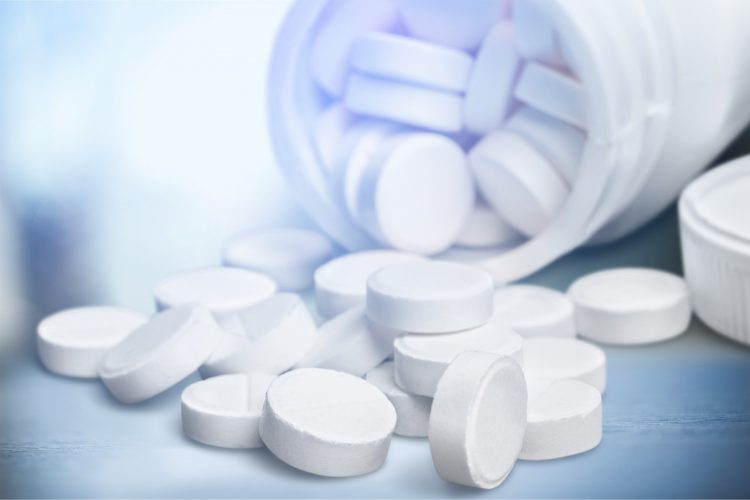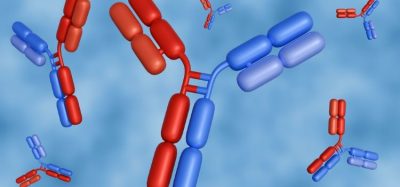Fluvoxamine may prevent severe COVID-19 onset, suggests trial
Posted: 16 November 2020 | Hannah Balfour (European Pharmaceutical Review) | No comments yet
Researchers say the promising results warrant larger trials evaluating fluvoxamine as a potential intervention to prevent COVID-19 patients developing severe symptoms.


In a new trial, the antidepressant fluvoxamine may have prevented clinical deterioration in outpatients with confirmed COVID-19. The investigators say they now plan to launch a larger study to see if fluvoxamine can protect patients from developing severe COVID-19.
The team compared the effects of fluvoxamine, a selective serotonin reuptake inhibitor and σ-1 receptor agonist used to treat depression and anxiety, to a placebo in 152 adult outpatients with COVID-19.
According to the researchers, none of the participants who received fluvoxamine showed clinical deterioration after 15 days, while six in the placebo did (8.3 percent). Four of those six where hospitalised and one was on a ventilator for 10 days. Clinical deterioration was classified as shortness of breath or hospitalisation for shortness of breath or pneumonia and oxygen saturation less than 92 percent on room air or need for supplemental oxygen to achieve oxygen saturation of 92 percent or more.
“The patients who took fluvoxamine did not develop serious breathing difficulties or require hospitalisation for problems with lung function,” said Dr Eric J. Lenze of the Washington University School of Medicine. “Most investigational treatments for COVID-19 have been aimed at the very sickest patients, but it is also important to find therapies that prevent patients from getting sick enough to require supplemental oxygen or to have to go to the hospital. Our study suggests fluvoxamine may help fill that niche.”
The randomised, double-blind, placebo-controlled study evaluating fluvoxamine was established after University of Virginia School of Medicine’s Dr Alban Gaultier and his former graduate student Dr Dorian Rosen found that it can prevent the inflammation causing sepsis. They determined in their studies that the drug reduces the production of cytokines, implicated in the potentially deadly “cytokine storms” thought to cause the severe symptoms of COVID-19.
“Because elevated cytokines levels have been associated with COVID-19 severity, testing fluvoxamine in a clinical trial made a lot of sense to us,” said Gaultier, of University of Virginia School of Medicine’s Department of Neuroscience and its Center for Brain Immunology and Glia (BIG). “We are still unclear about the mode of action of fluvoxamine against SARS-CoV-2, but research is under way to find the answer.”
The team added that even if the recent speculation – that cytokine storms may not causing COVID-19 mortality – fluvoxamine may have a beneficial effect by some other mechanism that is not yet understood. Washington University’s Dr Angela Reiersen explained: “There are several ways this drug might work to help COVID-19 patients, but we think it most likely may be interacting with the sigma-1 receptor to reduce the production of inflammatory molecules. “Past research has demonstrated that fluvoxamine can reduce inflammation in animal models of sepsis, and it may be doing something similar in our patients.”
The team cautioned that due to limitations in the study – primarily the small sample size and that 20 percent of participants stopped answering surveys during the 15-day trial – this trial should not be treated as a measure of fluvoxamine’s effectiveness against COVID-19, but as an encouraging indicator that the drug warrants further testing.
“If a larger clinical trial (Phase III) confirms the results, fluvoxamine would be a perfect treatment for COVID-19 patients newly diagnosed,” said Gaultier. “Fluvoxamine is not an experimental drug, it is cheap and safe and could be available as a first line of defence to unburden the hospitals that are overwhelmed by the COVID-19 health crisis.”
The study was published in JAMA.
Related topics
Related organisations
University of Virginia School of Medicine, Washington University School of Medicine
Related drugs
Related people
Dr Alban Gaultier, Dr Angela Reiersen, Dr Dorian Rosen, Dr Eric J. Lenze









